|
By E.M. Fredric In my lifetime, there hasn’t been one single, blood-thirsty, murdering, head-of-state that we haven’t helped for the most part. — Hubert Selby, Jr., December 2002 *Update: Please listen to the live interview "Cubby" and I did at his West Hollywood apartment in December 2003. It's more a revisit of two people who knew one another for decades and were catching up. We had talked about wanting to get a documentary of his work done before he died. Some of this audio is in a documentary after he died entitled: It/ll Be Better Tomorrow. A resurgence generated by two of his books made into films, "Last Exit to Brooklyn" and "Requiem For A Dream" brought a new fan base while paying homage to a man who was largely ignored for many decades, living on welfare and snubbed by the literary elite. I became aware of Hubert Selby, Jr. after Andy Kaufman gifted me a copy of Last Exit to Brooklyn. I devoured it within two days. I went on to search for and find four of his most known books and felt - like so many who know his work - that somehow this man stepped inside my very being or had been in my house growing up. Andy, then popular in the last year of the hit show, Taxi brought an older man to my 25th birthday party in West Hollywood. The night was packed with people from all walks, the comics came and went with the timing of their sets that night at the Improv or the Comedy Store. Andy entered my standing room only living room with a friend, smiled and introduced him as "Cubby". I offered "Cubby" a drink and he declined. We spoke briefly before Andy couldn't contain himself any longer and giggled loudly saying, "Eva-Marie do you know who this is?" "Yes, Cubby." "No, this is Hubert Selby, Jr. I brought him for your birthday!" I screamed and leapt up and down - the entire party stopped with someone asking if I was okay? "Yes!!! Do you know who this is?!" A resounding, "No." I repeated his name and I yelled out, "He's a rock star!!" Cubby roared with that cackling laugh of his. Instant friends. Cubby would move me many times over the years - we kept in touch infrequently as friends in LA do while trying to survive, have relationships, family, keep a career going or beginning - in my case. I've never forgotten his laughter, his wisdom and I will always miss what I lovingly refer to as "my raging Ghandi." The audio is below his photo - relax, enjoy a truly remarkable human being who I was fortunate to know. It covers much of this piece and more, Jim Carrey playing Andy, what Andy was like, his outlook on so many things. ~~~~~~~~~~~~~~~~~~~~~ Los Angeles, CA - Known as simply as “Cubby” to friends, this frail yet immensely powerful writer evoked emotions that fueled an end to the reign of censorship in British culture. Selby’s powerful prose was written with a sense of pathos, humility and humor, while alternately shocking the reader’s soul in short staccato punches with the grace of a prophet’s fierce moralism and truth. He was America’s conscience. The only child of a drunken and absent Kentucky coalminer, he and his parents settled in the Red Hook district of Brooklyn. Selby survived drug addiction, financial ruin and stood in the shadows of death throughout his life — after having ten ribs and one lung removed when he contracted tuberculosis as a merchant marine in his teens (a WWll veteran) — penned seven novels as well as screenplays, poems and short stories and taught writing at USC. He got sober at age 40 and remained so until his death. I’m so afraid I may die without finishing my work. That’s a real fear after all the effort I’ve put into learning how to write. That pisses me off. - Hubert Selby, Jr., December 2002 It has been said that Selby liked to wear his red China communist hat when he’d visit the VA hospital to “push their buttons” because he’d been denied his benefits for so long. Cubby, both friend and mentor, spoke with me for two hours in his West Hollywood apartment in December of 2002. His eyes danced effervescent blue. We both had hoped we could get a documentary made of his work for his family during his lifetime. It/ll Be Better Tomorrow (a line from his book: The Demon) — meant it won’t be, was completed posthumously. A portion of this interview is in the documentary narrated by Robert Downey, Jr. — Cubby would’ve loved that bit of casting irony. On becoming a writer… “I had TB and I was supposed to die 3 or 4 times. Dying became a way of life. This so-called specialist came around, he wouldn’t come into the room where I was—he stayed in the hall. He said, ‘You know, there’s nothing we can do for you. You can just go home and relax. You’ll probably be dead in a couple of weeks.’ And THEN, he sent me a bill! (laughs) I couldn’t stand school. I finished the 9th grade but I figured I could write because I knew the alphabet and I wrote about an incident in the hospital. Then some more spiritual experiences happened where I understood what I had to do as a writer, which can be summed up with that word ‘artist.’ But it wasn’t until 40 years later that I look back on a particular incident in my life and saw that was where I decided to be a writer.” On being an artist… “Being an artist doesn’t take much, just everything you got. Which means, of course, that as the process is giving you life, it is also bringing you closer to death. But it’s no big deal. They are one in the same and cannot be avoided or denied. So, when I totally embrace this process, this life/death, and abandon myself to it, I transcend all this meaningless gibberish and hang out with the gods. It seems to me that that is worth the price of admission.” On his creative process… “I wanted to put the reader through an emotional experience. I also knew I’m a frustrated preacher and a frustrated teacher and that has no business being in the work. I didn’t realize at the time, I was talking about the essence of life, freedom from the human ego. I’m not a messenger. If there’s a message, it’s in the people’s lives. When I wrote ‘Tralala’ (a short story–about a prostitute–that became Last Exit To Brooklyn) it took me 2 ½ years to write twenty pages. In retrospect, I don’t know how to think constructively. I call it thinking, but it’s really brooding. (laughs) It was a maddening six years (to complete the novel) and in order to project these people’s anguish so that the reader can experience it; I have to create these feelings in myself. By the time I’d finish a piece of work - I’d pass out and be in bed for a week or two.” On his favorite book.. (Many consider Requiem For A Dream to be his masterpiece. Ellen Burstyn was nominated for an Oscar for her performance in the film.) “I loved The Room. It’s the most disturbing thing ever written by a human being. I think it’s a masterpiece to tell you the truth. I couldn’t read it again for 12 years after I wrote it. The Room goes through space and time, reality and fantasy just so easily.” On being American… “I’m very, very American and I think I expose raw nerves and the very things people don’t want to exist. I do love this country’s possibilities. However, I am disappointed in its realities from time to time. Number one, what we’re doing to ourselves and others. You can’t separate the two. The other anguish is, we believe we’re right. Not everybody, but it’s heartbreaking. I think perhaps, my work reflects that. That anguish, the justification and the rationalization. I’ve always considered Last Exit a microcosm of this country and I’ve always thought of it as the horrors of a loveless world. Somehow, I can’t see the richest country in the world having fourteen million children going to bed hungry, starving to death in some cases. What in the heck is that? I don’t believe in handouts anymore than anyone else, but these are children. (The war) It’s about the Holy Grail of profit margins.” On going from the darkness to the light…
“I’m so afraid I may die without finishing my work. That’s a real fear after all the effort I’ve put into learning how to write. That pisses me off. I try and remind myself that everything changes in the wink of an eye. I always get what I need but I have to say yes to giving it away. It’s so difficult to do, but, if life presents something? I have to say yes and it’s never failed. I always loved the sea, absolutely loved it and would still be on the sea if I hadn’t gotten ill.” Selby’s ashes were scattered into the ocean and he’s immortalized through his books, films, and in the documentary, It/ll Be Better Tomorrow. *Writer's note: Knowing Cubby was one of the great privileges of my life and another huge fan of his work and mutual friend, introduced us - Andy Kaufman. When I showed Cubby the hard copies I had gotten of his books from bookstores around the state, his mouth fell open. Then Cubby gasped in awe and with childish delight - as he gently held the books like sacred treasues - he asked, "Eva-Marie... where did you find these? I wanna sign 'em!" Hubert Selby, Jr. (July 23, 1928-April 26, 2004) books: Last Exit To Brooklyn, The Room, The Demon, Requiem for a Dream, The Willow Tree, Waiting Period, and a book of short stories, Song of the Silent Snow and films can be found on Amazon.
0 Comments
By E.M. Fredric HOLLYWOOD, CA - 09/08/2019 - I wanted to honor my mother with a reprint of the original article I was asked to write for Psychology Today. Her early life was shaped by bombs, shelters, hunger, fear yet her unwavering love and support in freedom for "my beautiful America" - remained to her last days. Wars have a profound effect on children. I wish I had understood more when she was alive because it explained a lot of her behavior as a parent. This is a glimpse into what my mother and millions of others have endured, encountered or died from. Alcoholism: Through a daughter’s eyes. “Shhh, watch what you say! They’re listening!” These were the words whispered by my morphine-induced, cancer-ridden, German mother in her thick accent. “Write it down then tear it up into little pieces and throw it into the wastebasket so they won’t know. Shhhh…” she said with her bent arthritic fingers pressed against her parched lips as her terrified eyes pleaded with me from her hospital bed. It was the first time I ever saw through her eyes what a war-torn Germany looked like to a young girl. My mother had told us so many stories repeatedly throughout our lives, but I never envisioned her childhood as clearly as I did at this moment. It was if we had been transported to a different time and place. Her years of drinking and smoking had made their mark, transforming a former hourglass figure with blond hair and blue eyes into the withered, pain wracked and bloated body which lay before me. Her fair-skinned face sagged as my mother was now dying of lung, liver and bone cancer caused by nicotine and alcohol abuse. Her alcoholism was a part of the family dysfunction and abusive dynamics which grew after my father found work as a prison guard. I never knew my mother had an accent until a visiting 5-year-old girlfriend said, “Your mommy talks funny. How can you understand her? It’s scary.” I protested, then listened as my mother spoke and realized – she did talk funny to others – but she was just my beautiful mommy to me. My mother died on President’s Day – considering how hard she worked for her citizenship – it was appropriate. She loved being an American citizen. I spent the last 27 days of mom’s life by her hospital bedside – as both her daughter and advocate. The nurses had injected her with morphine several times forgetting the morphine patch had been placed on her arm upon diagnosis to admissions – a fifteen-hour ordeal. This near lethal error made a quick turnaround visit to her hospital room as I witnessed how time literally stands still at times like this. A moment is an hour; a day becomes a year as one processes the loss that is about to come. She had entrusted me, her only daughter to help her let go. I’m not so sure if the roles had been reversed that I would’ve felt as safe. It was only then that I saw my mother completely – at age 79 – as a woman who had lost her battle with the bottle and cigarettes. It was her last hospital stay – but not her first. On her deathbed – she was asking for a beer, not an unusual request from an alcoholic. Somehow that sounds harsh – if she were diabetic or obese and requested a cake, it would seem harmless. Mom could no longer swallow on her own without the danger of aspirating, so the beer was out – medication and radiation would keep the cancer pain at bay and her mind high enough to be cognizant but relaxed enough to make the decision on when she wanted to go. My mother was both a survivor and a fighter; charming, beautiful, extremely intelligent and kind, yet could be unspeakably cruel in a moment – no notice. It wasn’t unusual for her to bring an injured king snake home to nurse or a young man passed out in his car - only to wake up to a strange household and even stranger family – wondering how he got there - as my then Lieutenant father raged on about the dangers of bringing strangers home. The guy woke up hung-over and couldn’t wait to leave. She taught me to be concerned about others as much as she taught tolerance of drunken, violent behavior from my father to her and then to us. She made it clear that she would never leave our father (although they divorced when I was nineteen) - because of her children – more importantly for their safety. That stung deeply. Twenty-years prior my brother, who was still living with our mom in his 30’s, called me long distance in a panic, “Mom threw up a liter and a half of blood, man! She’s in ICU! She might die! I can’t go in there; you need to get here!” I lived over 300 miles away yet none of my siblings would go visit her. (Similar to her predicament now, but that one she would survive). Mom’s bleeding ulcers were caused by her daily intake of beer. I grew up in a half-European, half-American household – eventually all four children – at various ages – fell under the same spell that addiction brings. The brother who called me then is dead now – from drugs and alcohol. They’re the same monster to me. At first glance I didn’t recognize my mother – she looked like a bloated Asian woman asleep in her bed. Her roommate smelled of death, so I had mom moved into another room immediately, and the nurse was kind enough to find a private one with a window. It would be a remarkable South African doctor who saved her life – not with surgery but with heavy doses of Maalox. Years of daily alcohol consumption had caught up. She made it through and quit drinking for a year. Dr. Pepper became the replacement drink. She swallowed as many cans as she had of beer and her off/on beer substitute accentuated her lifetime struggle with obesity. I begged her doctor to talk to her about alcoholism, but he seemed only to care that he had saved her life. This handsome young black man just smiled and shrugged. I filled her room with balloons and flowers and returned home knowing she was out-of-the-woods. For now. My mother was a linguist, singer of classical and popular tunes, eventual furniture saleswoman, a real estate agent and even had her own classical radio show at the local Junior City College. She worked at the Eye-Hop for a minute as she was fired on her first night of waiting tables. She wasn’t a good cook, but her talents were vast, and she helped my father get a career in the Dept. Of Corrections. My father had met and married her in Europe and brought her over while she was pregnant with my older brother. It would be my father’s drinking that she told me she always wanted to keep up with at prison parties. “I would stick my finger down my throat to vomit, so I wouldn’t get drunk and could still have a cocktail. I didn’t want to get drunk.” As an adult when she revealed that to me I realized she had been a bulimic drinker in her late 20’s to early 30’s. All four of us kids were recipients of her “care” packages filled with everything you didn’t need in your kitchen or apartment/home. Then came the announcement of an unforgettable and comical box when she rang to tell me in her thick, tipsy German accent, “I think I made a mistake. I’m not sure why I did it, but I thought you needed food so… I sent you a frozen chicken.” "You sent me a frozen chicken? Why?" "I don't know why, I made a mistake." Her drunken laughter drowned out my attempt to convey it was 105 degrees in the summer heat of Los Angeles. When the box came – days later – it also contained a dozen broken eggs all over the clothes and spices she had tossed in there for my then young son and me. It all ended up in the dumpster. My mother apologized but her laughter I’ve never forgotten. To her it was hysterically funny – to me, it was just another crazy thing mom did. She always laughed when she lied or made a mistake always saying, “I don’t know what I was thinking.” Perhaps “drinking” would’ve been a better choice of words. She always carried a coffee cup and over time people would come to realize her accent wasn’t so thick. Her speech was due to the contents of the coffee-less cup. Mom normally hid her beer there in the mornings after her usual coffee until the late afternoon when it was “normal” for people who loved to drink. Or as she always loved to say, “The Germans love their beer!” On her 75th birthday, she decided to have all of her grandkids come to stay with her. I flew my then 13- year-old son to visit with female cousins. My mother had promised she wouldn’t be drinking but hadn’t counted on my sister-in-law setting her up when she brought her little girl over with a 12 pack of beer. By the second night, my son called me for help with my mother cussing and with a venomous voice declaring, “I knew you would call your mother! Why? Why? Why?!” In the background, the cousins in unison screamed, “Nana’s drunk!” I flew him back the next morning. My mother was heartbroken. So was I and the kids all were affected by the drunken behavior. I was so proud that my son was the only one who had the courage to call for help. Any time my mother came to visit me she had to come with a big ta-do and leave with a dramatic encore, crying or screaming. Once, I had to go find her as she wandered the streets in a drunken stupor. I found her and dragged her into my car and took her home until she slept it off. As she aged so did her drinking behavior. Yet when I reflect on that now, I understand so much more about her own background and what made her make the choices she did. She was afraid to be left alone with four children as a foreigner, a legal immigrant, yet when my parents finally did divorce; she did okay for herself. She found a new love of many years long distance and of course her first love had become her liquor – that struggle to maintain a relationship with a bottle never ended until she did. That bottle or can is a like a person - a relationship. The simplest lessons that my mother taught her kids were the same things she was clueless about. How to survive at all costs, not to speak about what was wrong because you might be judged or ridiculed (even if it was our fault). Let no one really know what was going on inside of you or our home – because they might find out the truth. My mother’s horrible truth was that she suffered from post-traumatic stress disorder yet would do nothing about it. She didn’t know how to live; she knew survival skills that she passed on to her kids and grandkids when she could. Not to be mean. It was the only way she knew how to exist. How such a brilliant beauty became so frightened and alone were the results of her addictive consequences of consumption. Alcohol. That bastard touched every part of her and our lives keeping love from being openly shared. It was always ‘Never show fear, fight at all costs.’ She also passed on an open mind and the importance of helping others. Her warm, even tender side was something to embrace, but it wasn’t out much – like a turtle’s head. After she died while cleaning out her five-bedroom, two-story home I came across folders filled with information on all of her children and grandchildren. She had left a landmine for everyone to read based on her observations throughout her life and they weren’t kind. I destroyed them along with the computer and hammered the hard drive until it was in bits. Why she needed to leave wanting such drama to continue told me how much she hurt while being alive. And yet she never told me, fully. She had to know she was dying for months before I got that call. When I came to take her to the hospital the first words that came out of her mouth were, “I didn’t think you would come. I’m sorry for screwing you over all of these years.” It reminded me of a visit – years before – when I had made that same 300-mile drive, and within hours she was starting to bicker, so I got up to leave. I left with her calling out to me not to go. I drove out of town, crying only to turn around. I went to her and said, “I can’t stay, but I want you to know, this is the first time in years you've told me that you love me. I love you, but I can’t fight anymore. I can’t do this with you anymore.” We both cried. I have come across my own journals throughout the years and realized that since I left home, I always was trying to reach back to my family, especially my parents. Recurring themes in both journals and letters were about how I wanted to be able to communicate better with them, how I loved them, how I drank too much and was scared. My need for family or a connection was so deeply imprinted within me, yet the only time I ever felt a sense of calm or purpose was when I had my own child – always hoping that he wouldn’t have to suffer the same genetic make-up yet also understanding that it’s a blessing in so many ways. I had learned I didn’t have to destroy myself to be successful or to love or to be the best at what I want – just sober, awake and willing to ask for help and to return that help in kind as a reminder from where I come. Alcoholism destroyed my mother’s life as a woman, a wife, a mother, and a friend. It almost took my own more than once. I miss my eccentric German mother because there were so many beautiful things she did or said yet the heaviness of the walls she built to survive never came down for long. Never long enough to get close. Just when I thought I was close I got bit. Like a rattlesnake. It will tell you it can be your friend, but in theory, it’s still a rattlesnake, and you will get bit. I’ve been asked why I miss someone who caused so much pain. It’s simple, she was my mother, and her mother caused her more pain. The damage my mom incurred growing up during war times is only understood by war survivors, veterans, and their children. We get each other’s pain that few others do.
Anna Maria Constance Korn, also known as Annieme (pronounced Ah-Knee-Me), was a very special woman who never had the chance to be who or what she wanted to be in life. Her talents in many areas went unrecognized but not missed. *My mother's best girlfriend died in a concentration camp. Her name was mentioned frequently while my mother was alive. Hannah Laurie - you had a good friend in my mother. I love and miss you, Mom |
AuthorWhen someone shares their story, or in some cases parts of their life, they give us history. Without it - we wouldn't know why we're here. People teach me it's okay to fear being wrong. In fact, it is often a necessity in finding my way. ArchivesCategories |
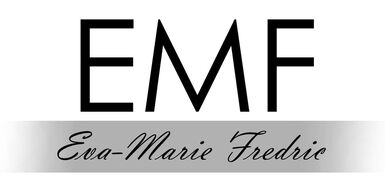
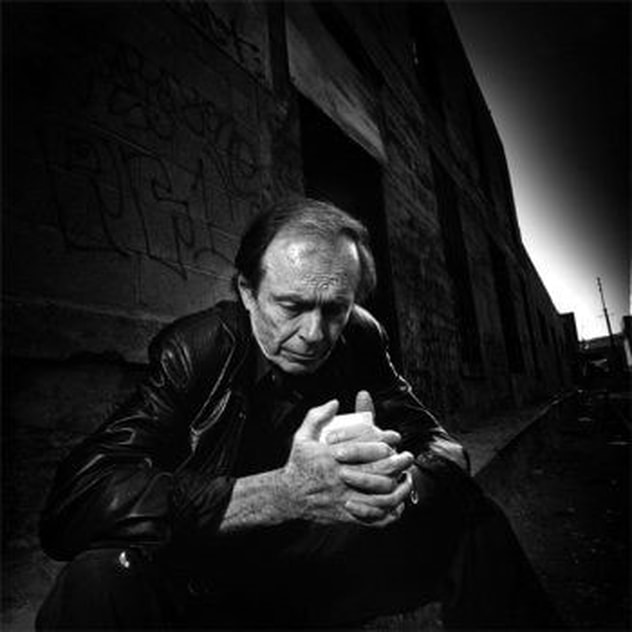
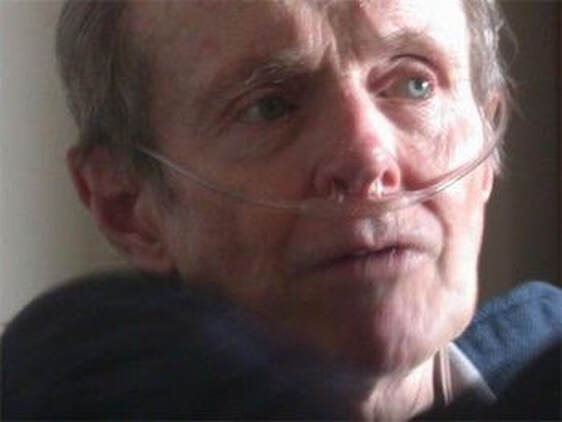
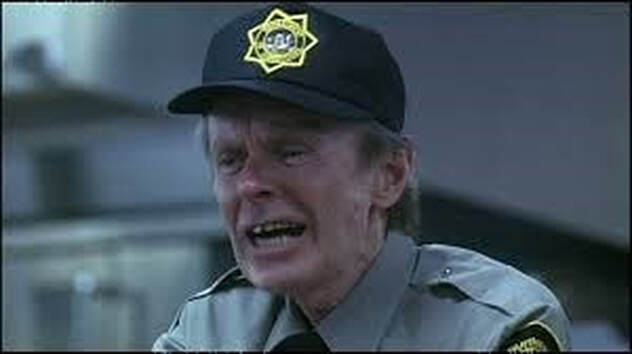
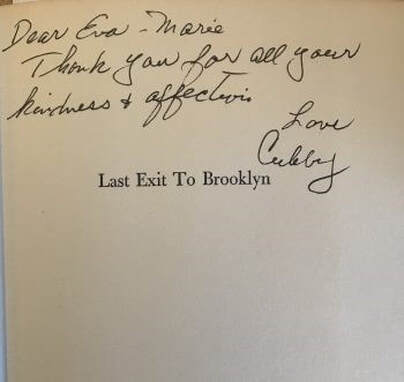
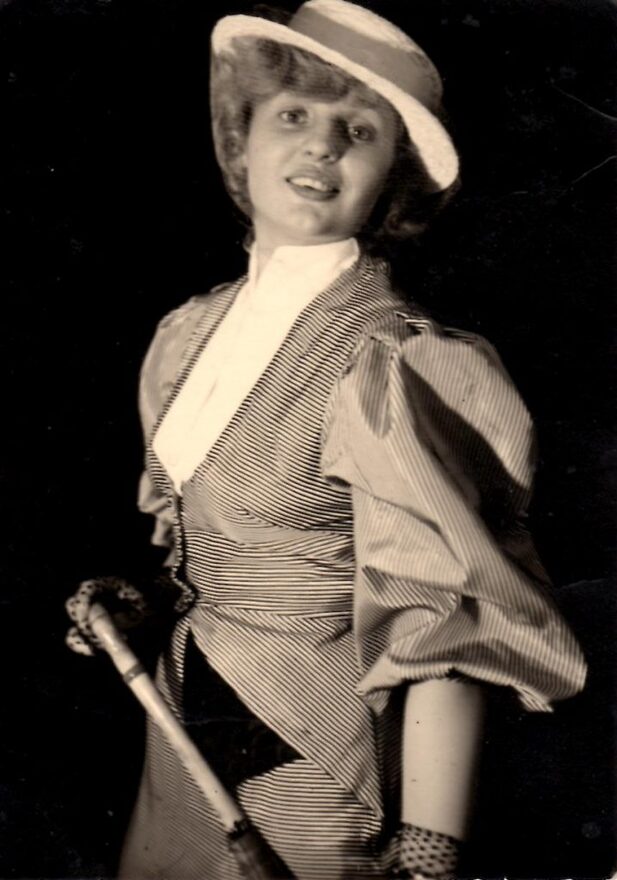
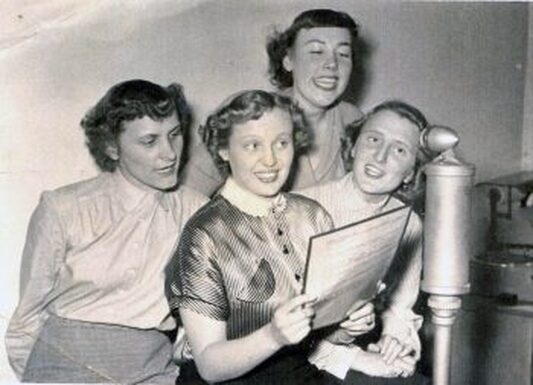
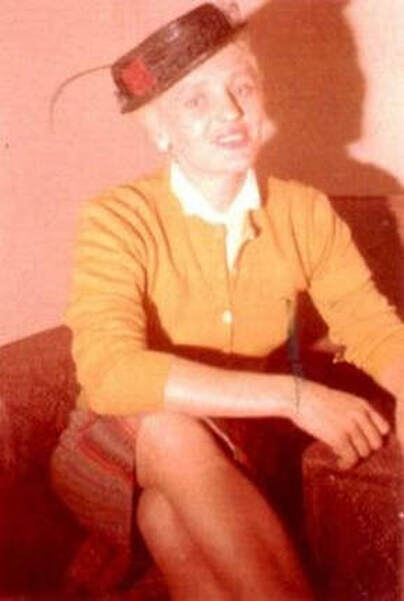
 RSS Feed
RSS Feed